Have you ever wondered why your website’s search rankings suddenly changed, despite your consistent SEO efforts? Or why some of your tried-and-true SEO tactics don’t seem to work as well anymore? The answer might lie in the rapidly evolving world of artificial intelligence (AI) and its growing influence on search engine optimization.
In this article, we’ll explore how AI is transforming SEO and what you, as a marketer, need to do to stay ahead of the curve. Let’s dive in!
The AI Revolution in SEO
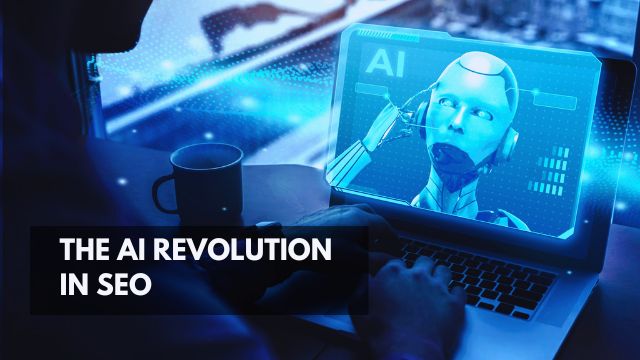
Remember when SEO was all about keyword stuffing and link building? Those days are long gone. Today, AI is revolutionizing how search engines understand and rank content, making them smarter and more user-centric than ever before.
As a marketer, understanding these AI-driven changes is crucial for maintaining your competitive edge. The pace of AI development is relentless, and its influence on search algorithms is only growing stronger. Ignoring this trend could leave your SEO strategy in the dust.
Key Takeaways:
• AI is making search engines more intelligent and user-focused.
• Marketers must adapt by prioritizing content quality, user experience, and technical SEO.
• Staying informed about AI advancements is essential for SEO success.
How AI is Transforming Search Engine Algorithms
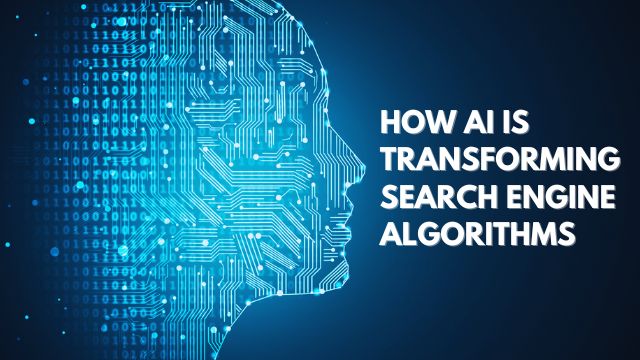
Machine Learning: The New Brain of Search
Remember when Google introduced RankBrain? That was just the beginning. Now, we have models like BERT that are revolutionizing how search engines understand user intent. These AI-powered algorithms are getting better at deciphering the context and meaning behind search queries, not just matching keywords.
For example, if someone searches for “apple pie recipe without sugar,” the search engine now understands that the user wants a sugar-free recipe, not just any apple pie recipe that happens to mention sugar.
Natural Language Processing: Speaking the User’s Language
AI’s natural language processing (NLP) capabilities are taking search to a whole new level. Search engines can now understand the nuances of human language, including context, sentiment, and even sarcasm. This means that content that truly answers user questions and provides value is more likely to rank well, regardless of exact keyword matches.
Keyword Strategies: Evolving Beyond Simple Matching
Gone are the days when stuffing your content with exact-match keywords would boost your rankings. AI-driven search engines now prioritize semantic search and content relevance. This means focusing on topics and user intent rather than specific keyword combinations.
AI-Powered SEO Tools and Technologies
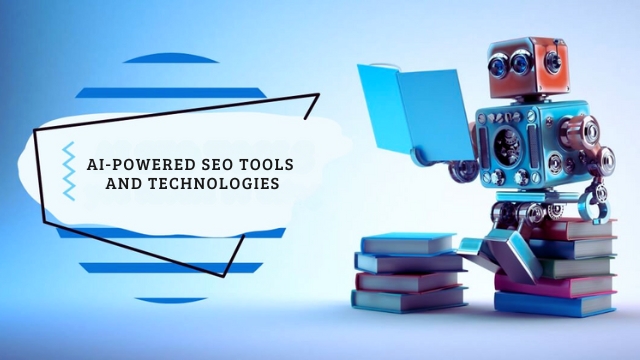
Content Creation and Optimization
Tools like GPT-3 and Jasper are changing the game for content creation. These AI-powered assistants can help generate ideas, outline articles, and even write drafts. But remember, while they’re great for inspiration, human creativity and expertise are still crucial for creating truly valuable content.
Automated SEO Audits
AI tools can now perform comprehensive site audits in minutes, identifying technical SEO issues and providing actionable recommendations. This allows marketers to focus on strategy rather than getting bogged down in technical details.
Predictive Analytics
Imagine knowing which topics will trend next month or which keywords will drive the most traffic. AI-powered predictive analytics tools are making this a reality, allowing marketers to stay ahead of the curve and plan their SEO strategies proactively.
The Future of SEO

Personalized Search Results
Ever notice how your search results seem tailored just for you? That’s AI at work. Search engines are increasingly delivering personalized results based on your search history, location, and even the device you’re using. As a marketer, this means focusing on creating diverse content that can appeal to different user segments.
Voice Search: The New Frontier
“Hey Siri, find me a nearby Italian restaurant.” Voice search is booming, and it’s changing how we optimize for search. AI-powered voice assistants are getting better at understanding natural language queries, which means optimizing for conversational keywords and long-tail phrases is more important than ever.
Visual Search: A Picture is Worth a Thousand Keywords
Tools like Google Lens are making visual search a reality. Users can now search using images instead of text. For marketers, this means optimizing images and considering visual search optimization as part of their SEO strategy.
Adapting SEO Strategies in the Age of AI: What Marketers Need to Do
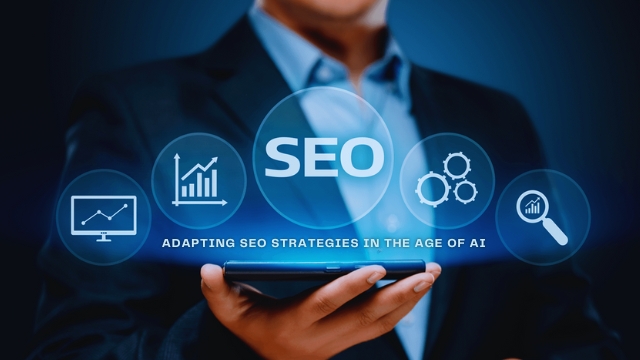
Focus on High-Quality, Relevant Content
In the age of AI, content is still king, but quality reigns supreme. Create content that genuinely answers user questions and provides value. Think about the user’s journey and intent, not just keywords.
Enhance Technical SEO
While AI is making search smarter, technical SEO is still crucial. Focus on site speed, mobile optimization, and structured data. These elements help AI-powered search engines understand and rank your content more effectively.
Stay Updated with AI Developments
The world of AI and SEO is constantly evolving. Make it a habit to stay informed about the latest AI advancements and how they impact SEO. Regularly update your strategies to align with new AI capabilities.
FAQs: Addressing Common Questions About AI and SEO
Q1: How does AI affect my current SEO strategy?
A1: AI is making search engines smarter at understanding user intent and content relevance. Focus on creating high-quality, user-centric content and optimizing for user experience rather than just keywords.
Q2: What AI tools should I use for SEO?
A2: Consider tools for content optimization (like MarketMuse), technical SEO audits (like Screaming Frog), and predictive analytics (like BrightEdge). However, always combine AI insights with human expertise.
Q3: Is keyword optimization still relevant in the AI era?
A3: Yes, but the approach has changed. Focus on topics and user intent rather than exact-match keywords. Use natural language and long-tail keywords, especially for voice search optimization.
Conclusion: Embracing the AI-Driven SEO Landscape
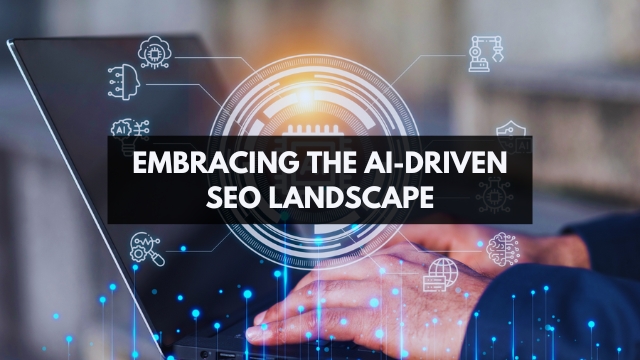
As we’ve seen, AI is reshaping the SEO landscape in profound ways. From smarter search algorithms to AI-powered tools, the opportunities for marketers are exciting and challenging in equal measure.
The key to success in this new era is to stay proactive, continuously update your strategies, and embrace AI tools as allies in your SEO efforts. Remember, while AI is transforming how we approach SEO, the fundamental goal remains the same: providing value to users and answering their questions effectively.
So, are you ready to embrace the AI revolution in SEO? The future is here, and it’s time to adapt and thrive in this new landscape. Start by reassessing your current strategies and exploring how AI can enhance your SEO efforts. The search engines of tomorrow are being built today – make sure you’re prepared to meet them head-on!
Author Profile

- Nitin Jain - C.E.O - India PR Distribution
- Nitin Jain is the founder and C.E.O of India PR Distribution - India's top Press Release Distribution and PR Agency. Nitin has more than 20 years of experience in PR, Corporate Communications, Digital Marketing, Branding Strategy and Lead generation.
Latest entries
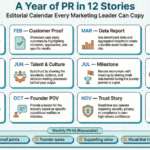 Press releaseJanuary 31, 2026A Year of PR in 12 Stories: The Editorial Calendar Every Marketing Leader Can Copy
Press releaseJanuary 31, 2026A Year of PR in 12 Stories: The Editorial Calendar Every Marketing Leader Can Copy EntrepreneursJanuary 5, 2026Nitin Jain Entrepreneur Behind India PR Distribution Success
EntrepreneursJanuary 5, 2026Nitin Jain Entrepreneur Behind India PR Distribution Success Press releaseNovember 20, 2025Meet Nitin Jain: CEO of India PR Distribution
Press releaseNovember 20, 2025Meet Nitin Jain: CEO of India PR Distribution Search OptimizationSeptember 16, 2025What Is Digital PR and Why It Matters for SEO Success
Search OptimizationSeptember 16, 2025What Is Digital PR and Why It Matters for SEO Success

